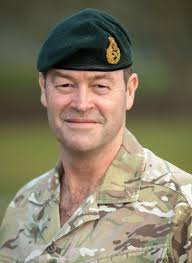Patrick Sanders: The New Chief of UK General Staff

Introduction
In June 2022, General Patrick Sanders took over as the Chief of the General Staff of the British Army, following in the footsteps of General Sir Mark Carleton-Smith. Sanders, who is regarded for his operational experience, particularly in Iraq and Afghanistan, aims to guide the Army through a rapidly changing global landscape. His leadership comes at a critical time when the UK faces numerous challenges, including the evolving nature of warfare, budget constraints, and a need for modernisation.
Background and Experience
General Sanders graduated from the Royal Military Academy Sandhurst in 1983 and has held a variety of key positions throughout his career. Prior to his current role, he served as the Commander of the Combined Arms Command and was the Director of the Defence Academy. His extensive experience, particularly in strategic operations, positions him uniquely to address the challenges currently facing the British Army.
Focus Areas and Initiatives
Since assuming office, General Sanders has articulated a clear vision for the Army’s future. One of his primary aims is to enhance the Army’s capability to conduct operations in a high-tech environment, recognising that modern conflicts increasingly rely on advanced technology and cyber warfare. He has called for increased investment in digital capabilities and the integration of artificial intelligence into military planning and operations. Furthermore, Sanders emphasises adaptability and the need for the Army to prepare for various scenarios—from traditional combat to hybrid warfare and peacekeeping missions.
Additionally, General Sanders has pointed out the importance of improving recruitment and retention strategies, particularly as the Army currently faces personnel shortages. Efforts are underway to make the military more appealing to potential recruits, with focuses on diversity, inclusion, and wellbeing.
Conclusion
As General Patrick Sanders leads the British Army into a new era, his strategies could significantly shape the Army’s operational effectiveness and readiness for the future. His emphasis on modernisation, technology investment, and recruitment will be critical in overcoming the challenges posed by contemporary security threats. Analysts expect that under his leadership, the British Army will continue to evolve, reinforcing the UK’s position in global defence and security. The success of these initiatives will be closely monitored by both military experts and the public alike, as the implications of his leadership extend beyond the confines of the Army itself, reflecting the broader security landscape in the UK and beyond.









